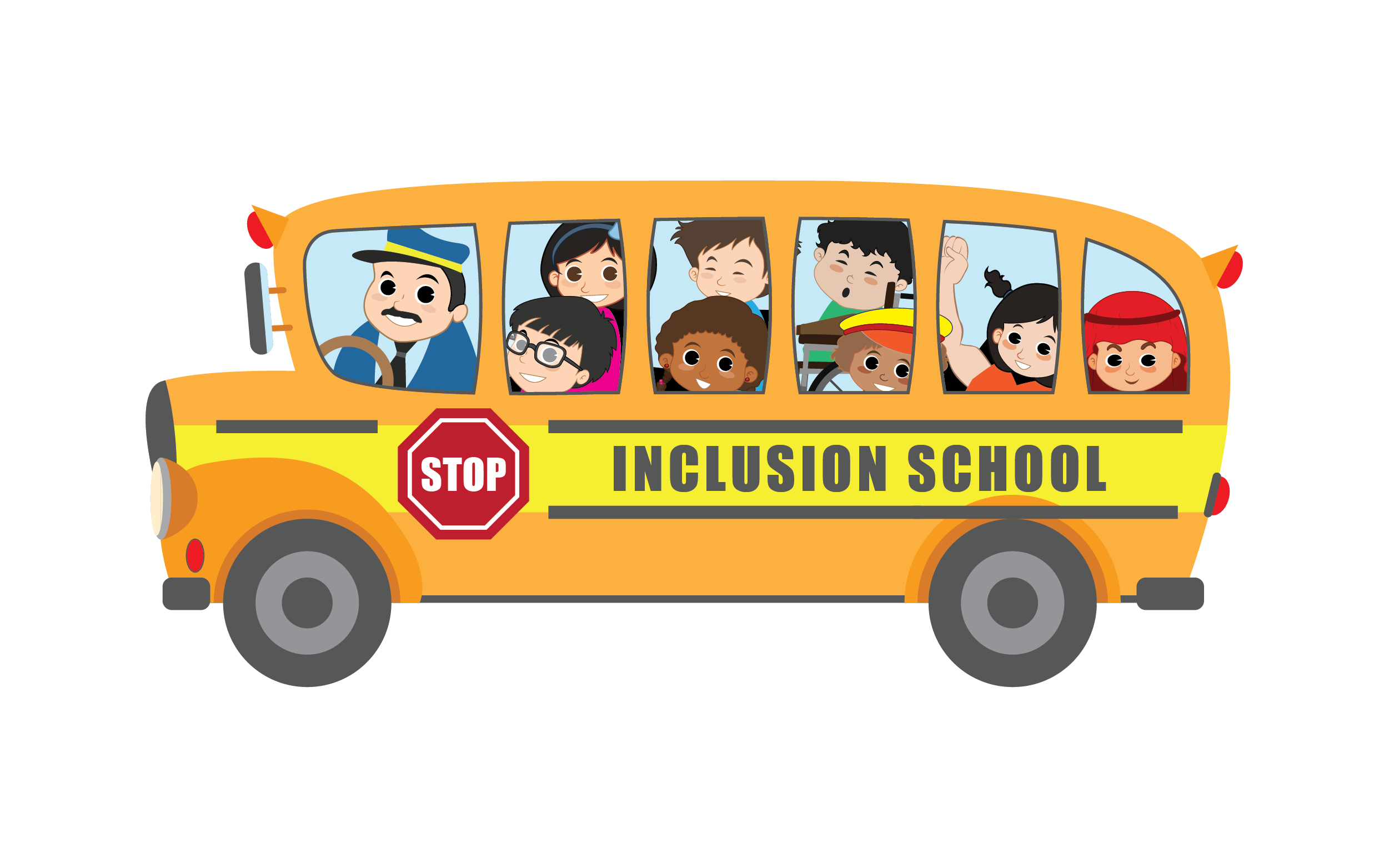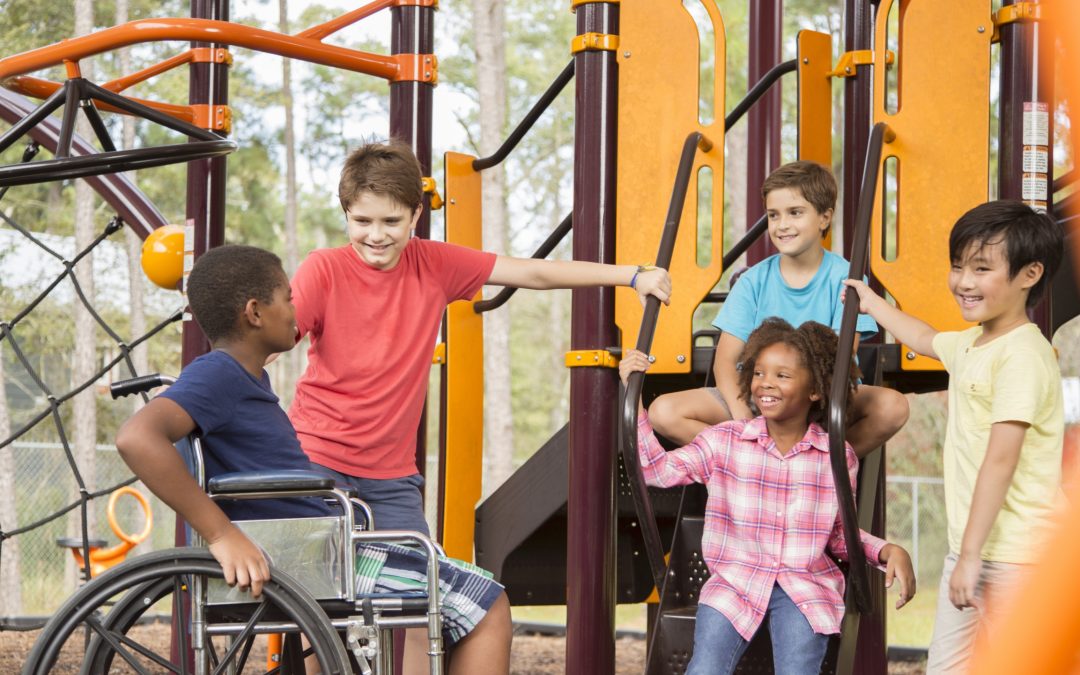Inclusion School podcast hosts, Simone Morris and Julie Kratz, share real live scenarios and stories about their children and communities. Listen in to this week’s real talk!
Simone Morris: Well, welcome to this week’s episode of Inclusion School Podcast. Today, Julie and I decided we want to do a Real Talk. It’s been a while, and we know that these are well received and there is, believe us listeners, a lot going on. And so, Julie, hello, how are you today?
Julie Kratz: Hey, Simone. I love our Real Talk episodes. It’s a fan favorite and it’s a personal favorite of mine to spend some time talking with you about these hot topics that aren’t just happening in the workplace anymore. DEI is very much entering our home life, our school systems. Hot topic for sure.
Simone Morris: It is everywhere. You’re so right, and we are constantly challenged to show up authentically and help others along the journey. So, looking forward to unpacking some of these topics with you. I know that before we began recording, we started sharing experiences, and I was sharing an experience to say that this is not easy work, Julie, because sometimes what you’re trying to do professionally bumps up against who you are personally. And we’re finding, in the work that we do, that you’ve got to intermingle the two. And I will say that it gives me pause.
So, I had an example of my daughter showing up at the playground and interacting with another child who is a lot older, and I’m wondering to myself, “Julie, am I discriminating, doing ageism,” because I’m thinking that, for her age group… So, my daughter is six and usually, after school at the playground, the kids that play there go from kindergarten to, I would say, second grade or so. It’s not a steep jump, but we have someone who’s in high school that has been coming to the playground on a regular basis and I find my mama bear instincts just being hypervigilant about being a mama bear about their interactions, about the leadership style that this high school student has over these young kids and just bossing them around, just… I struggle with it. And then, I’m playing in my mind. Am I not being inclusive? What do you think, Julie?
Julie Kratz: Yeah, the everyday nuances. You and I have tools and things we can use in the workplace and how to help with microaggressions, how to be an ally, but when it comes down to your neighborhood playground, things get very real, very quick. And I think, Simone, for you going into that mama bear mode, I mean, your job is to protect your child, first and foremost.
I think for me, it’s really understanding the intentions of it. And the curiosity piece, I know we’ve talked about that a lot. Instead of judging, right, this older kid, like “Why would you want to play with younger kids,” right.
Simone Morris: So hard.
Julie Kratz: All right, let’s be curious. What’s going on with this fellow? He is interested in playing, right? But I know coming at things with positive intention and from a curious mindset, but it does change with age. A lot of our talks, just because our kids are younger, have focused on elementary school, but we know as kids go into middle school and then high school, biases become much more well cemented, behavior, vocabulary expands. So, I think about age-appropriate comments and what kind of conversations they are having? Is Millie ready for that, too?
Simone Morris: She’s not ready, although she may think that she’s ready. I struggle. I really struggle with framing, and I think other parents struggle with framing. How do I frame this so I’m not being exclusive? So, how do I stay curious with my framing? So, I don’t want to frame it and say, “What are you doing here? Why do you come here every…” That’s… How you deliver it, because it makes me think of Trayvon Martin, honestly challenging, you don’t belong here because it’s an open school playground.
What I will say, Julie, is for me, it’s a good thing because I’m recognizing and sort of unpacking my response to the situation and evaluating how I can show up differently, instead of just staying in mama bear mode, fiercely, and this is how I show up. I’m trying to figure out how to appropriately show up because there’s not another parent involved. Normally, with these age nuances and differences, there may be a parent where you can go and have a conversation, but in absence of the parents, how do I engage, staying in the zone of curiosity, in an inviting way to have respectable dialogue?
Julie Kratz: Yeah. Well, and I think too, one of the things we talked about on the podcast a lot is, for our kids, teaching them how to navigate differences and celebrating it through friendship. That’s how Charlotte Wants A BFF was all written because Millie wanted to have a BFF, a best friend forever, and that message resonates, so it’s kind of a fun wrapper to have a more serious conversation about differences and diversity.
I think that was really the impetus of why we wrote Charlotte Wants a BFF, because we knew how important the message was about friendship and appreciating differences through friendship, and both of our daughters really wanted that best friend. And we wanted to write a story where diversity was part of it, but it was also a fun story that they could enjoy reading.
And I wonder, in this situation, if there is a lesson for all of us, in this lesson about appreciating others that are different than us through friendship, through extending friendship, through being there, through playing with somebody that’s different than you, whether that’s age or other dimensions of diversity.
Simone Morris: Julie, I wonder how you would… If this scenario was playing out with Jane, how would you handle it? I’m just curious.
Julie Kratz: Yeah. I think without knowing the parents, I think that’s a really good point. I’m a little persnickety with kids’ parents.
Simone Morris: There isn’t a parent there. There isn’t a parent for you to talk to.
Julie Kratz: I know, and I really struggle, honestly. In a similar vein, I struggle when there aren’t parents around or they don’t know the child’s parents. All of the friends that come over or that Jane plays with, even at the pool or in her community, I know their parents. I’ve talked to them. And so, I know that’s not possible in this situation, but I struggle when I don’t know the full context or I don’t know what behavior is being modeled for those kids.
We had a situation where I was actually probably not so nice, just some neighborhood kids that just walked right in the door and I’m like, “That’s not okay here. We have norms and that’s not what’s going to happen here. Y’all need to leave, and if you want to play, you can play outside.”
So, I can be a bit of a tough mom sometimes, but I think, for me, it’s again, knowing where this kiddo is coming from, like what’s motivating him to want to play with younger children. I’m just wondering the impact and me channeling the empathy is… What’s going on that he doesn’t have friends his own age?
Julie Kratz: Why is that, and what could this be providing that he might be missing in other aspects of his life? But I totally get it. This whole idea of DEI, I think it’s tethering. It’s a yes, and conversation, and there’s no perfect way to do this. I think we put a lot of pressure on ourselves as parents already, and then you layer on something like diversity and you put pressure on that, and that’s just a lot. It’s a lot to take on because you can’t do these things perfectly.
Simone Morris: Yeah. I think that’s the key that you’re saying there, Julie, is that we are imperfect beings and to cut ourselves some slacks. We’re usually very hard on ourselves as parents to begin with. What I took from the story is that there is an opportunity to get curious and to better get to know this student.
Simone Morris: Get to know them. It’s almost like I’m slowing down.
Simone Morris: It’s with DEI, as well. Diversity, equity and inclusion. You’ve got to slow down, to dance with discomfort and that’s what’s required here. I’ve got to slow down instead of, we’ve got to get here, here, here-
Julie Kratz: What’s going on here, and just kind of speeding through because we, as parents, are being watched, not only by our children, but by others. So, just be mindful of how to show up. So, I think talking it through has been helpful to think about different approaches for this situation that continues to happen.
Julie Kratz: We have to keep this posted on the playground situation.
Simone Morris: Yeah. We’re going to have to write a book, Julie, called The Playground.
Julie Kratz: The playground is so interesting for people watching. I think listeners, pay attention the next time your kid’s playing. I know I have a tendency to take a podcast down or a book, not pay attention as long as my kid’s safe, but I think if you spend a few minutes just watching the behaviors of kiddos… Who’s getting played with, who’s not. Who’s following, who’s leading. There’s a lot of gendered behavior that happens very early, for example. There’s racial behavior that happens, age, like we were talking about, so slow down. Yeah.
Julie Kratz: I love that message, Simone, just slow down, because our brain operates so quickly. Those biases and assumptions just happen simultaneously without us even having to think about it, and sometimes it’s just helpful to just be present, take in the environment for just a few minutes, and really think about your kid being as inclusive as you’d like him to be, right. Maybe there’s a lesson you could model for your kid. Or if they’re being bullied or led in a non-inclusive way, maybe there’s an opportunity to talk through some strategies with your kiddo, but just observing, taking it all in, and like you said, the importance of slowing down. That’s great.
Simone Morris: Love that. Love that. I’ll keep you posted. I’ve got notes on what I need to do, conversations that I need to have, so love that. That’s why I love these Real Talk episodes that we have.


Recent Comments